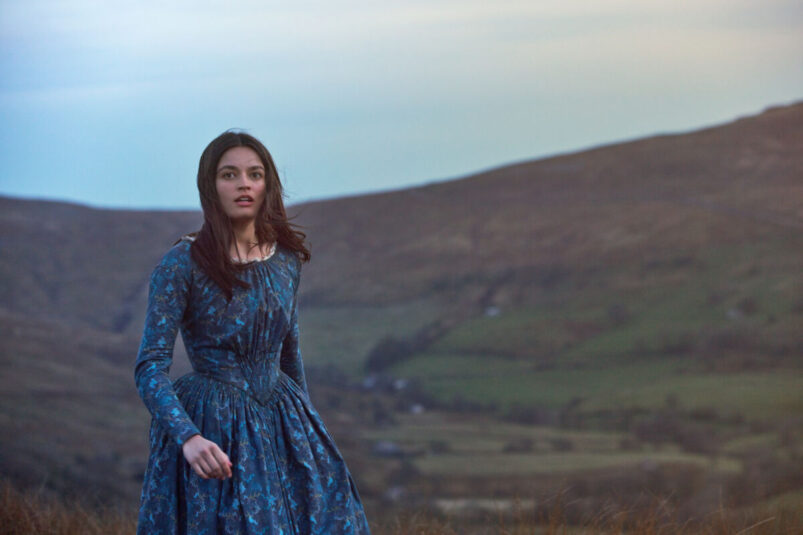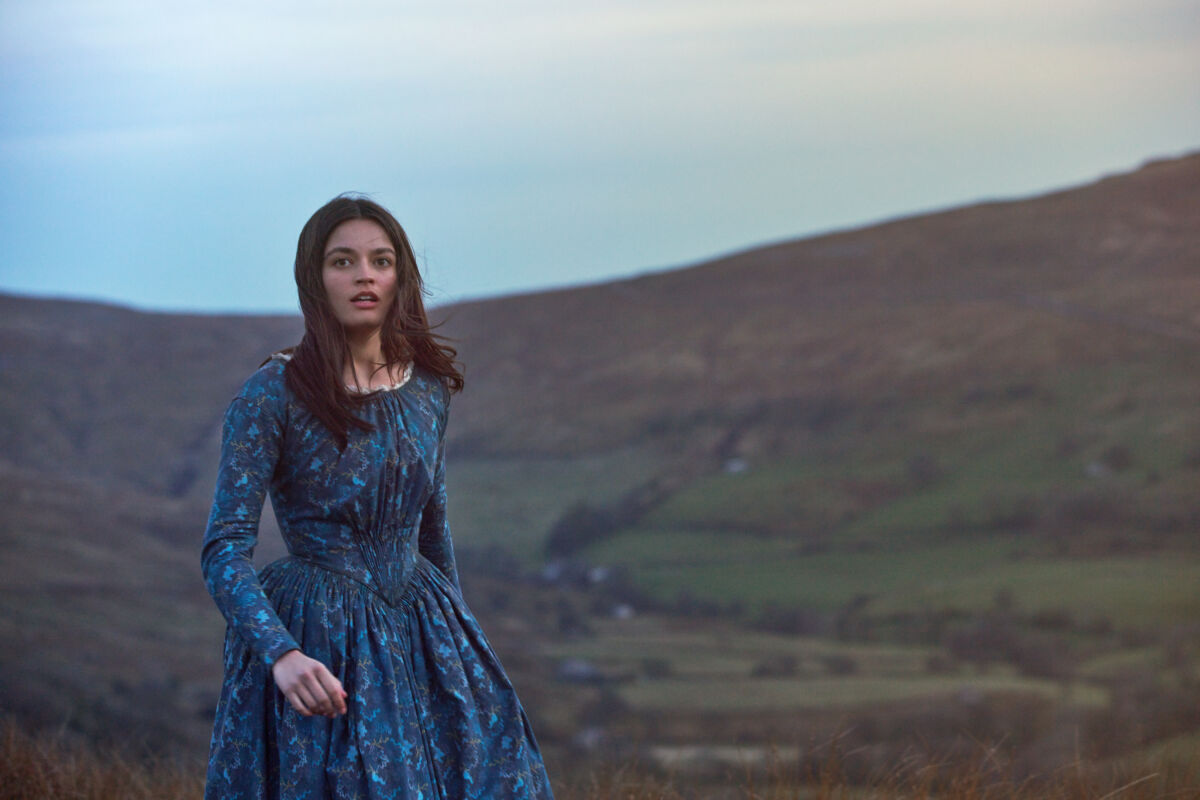No book can trump Emily Bronte’s Wuthering Heights for me. In all the decades I’ve lived, there hasn’t been a book that’s made me feel as much as Bronte’s one and only novel. It’s always been an intriguing fact that she conjured all the material from her own imagination. After all, Bronte never knew romantic love in her own capacity, at least, that’s what history tells us. But the truth is, there’s so much we don’t know, and Frances O’Connor’s movie Emily is a fictional creation of the possible reality Bronte might have experienced, which would have given her the passionate material she needed to write a book like Wuthering Heights.
Much like Julian Jarrold’s Becoming Jane took certain liberties, so does O’Connor’s Emily. From what we know, Emily was very close to her sister Anne, but Anne is rarely present in this film. Here, Emily (Emma Mackey) is inseparable from her brother Branwell (Fionn Whitehead), who loves her with a frightening intensity. The two relate to each other because they feel like outsiders in their own family. Charlotte (Alexandra Dowling) is the sibling who does everything right, while Bran messes up constantly, and Emily is so terribly introverted that she can barely seek out company.
A new curate named William Weightman (Oliver Jackson-Cohen) enters the picture, and he and Emily are inexplicably drawn to each other, but feel the need to let their relationship play out in antagonism. William is a man of God, and is fearful of Emily’s fanciful and seductive creations, feeling that she’s drawing him to a place that is far from God. Even though Emily goes to church, she is full of skepticism and doubt, often questioning William’s blind faith in God.
Mackey is brilliant as Emily. She’s fiery, irreverent, and manages to convey Emily’s sense of isolation so well. She allows us to feel closer to Emily, and see her rich, inner life up close. Given the gothic nature of Wuthering Heights, there’s supernatural elements in Emily as well. O’Connor shows us how haunted the Brontes are by the death of their mother, and crafts poignant set pieces to convey this feeling of loss and grief. The cinematography does such a great job of capturing this gothic mood, with the gang taking windswept walks through the moors and taking shelter from the rain in dilapidated cottages.
It’s obvious that Emily and William would eventually fall in love with each other. It’s a slow burn, filled with witty banter and long, incandescent conversations in French that reflect the pair’s passion for each other. Mackey and Jackson-Cohen are so magnetic together, and portray so well their characters’ feelings of push and pull, more so for William than Emily. For William, his desire and love for Emily is sinful, and he fears that she will lure him to a space where God is absent. O’Connor does so well setting up the tension of the romantic spaces between the pair, where even the untying of a corset can be the most beautiful, luminous thing.
So yes, we don’t know where Emily got the inspiration to conjure a tale like Wuthering Heights, and while her experiencing a secret romance of her own is a possibility, it’s also entirely possible that she was able to write it from nothingness, pulling from the extensive sea of her own imagination. Writing and creating is akin to witchcraft, and Emily Bronte is perhaps the greatest witch of them all.
Review screener provided.
READ NEXT: 20 Best Gothic Horror Movies of All Time
Some of the coverage you find on Cultured Vultures contains affiliate links, which provide us with small commissions based on purchases made from visiting our site.


